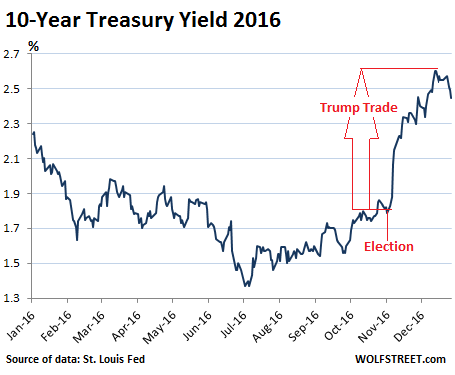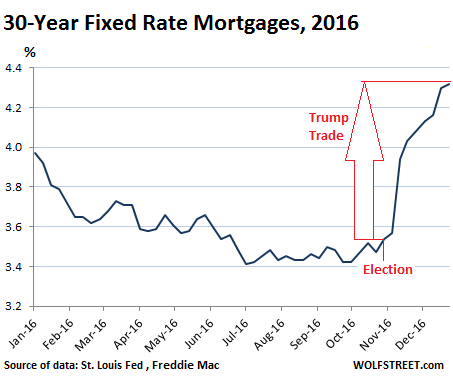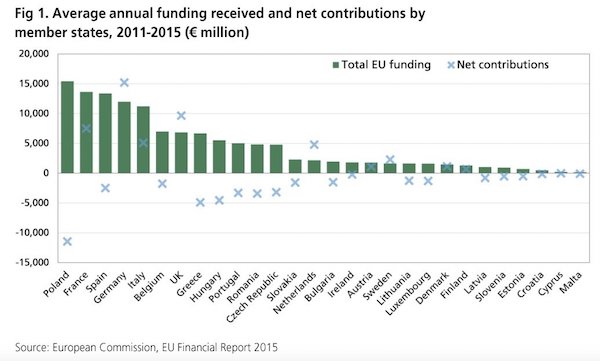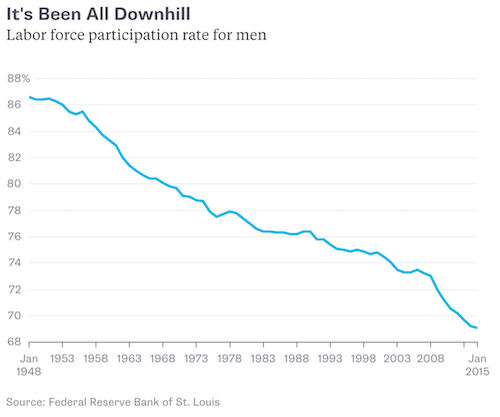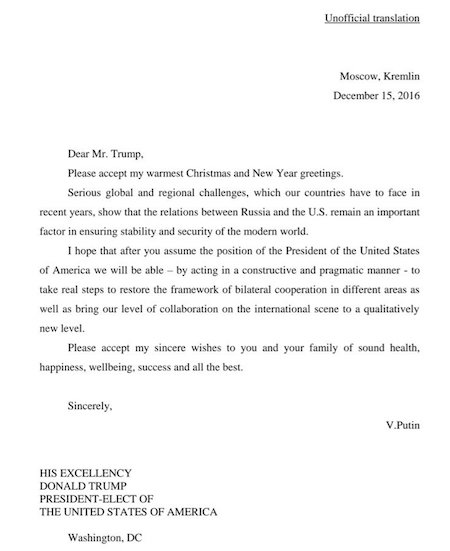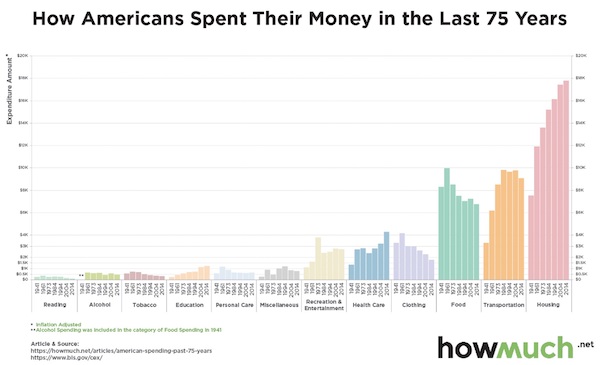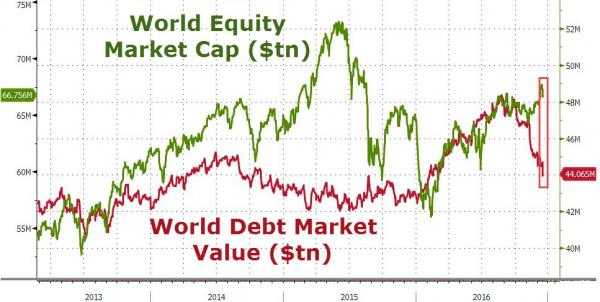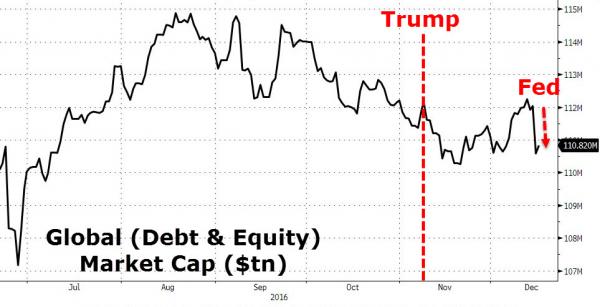
Robert Doisneau Françoise Gilot et Pablo Picasso 1952

“..raising the risk of massive price falls if markets overheat, according to the OECD..” Pretty sure they are overheated.
• Fears Of ‘Massive’ Global Property Price Fall In ‘Dangerous’ Conditions (Tel.)
Property prices have climbed to dangerous levels in several advanced economies, raising the risk of massive price falls if markets overheat, according to the OECD. Catherine Mann, the OECD’s chief economist, said the think-tank was monitoring “vulnerabilities in asset markets” closely amid predictions of higher inflation and the prospect of diverging monetary policies next year. Ms Mann said a “number of countries”, including Canada and Sweden, had “very high” commercial and residential property prices that were “not consistent with a stable real estate market”. She also said property price falls in Britain following the vote to leave the EU could “be good for the UK” if the adjustment is borne mainly by foreign investors.“We’ve already started to see some changes in real estate prices in the UK, [particularly in] the London market,” said Ms Mann.
“[What’s] interesting in terms of the implications for the UK economy is who bears the burden – who bears the adjustment cost. If it’s a non-resident then lower house prices could actually be good for the UK.” The warning comes as research by Countrywide reveals that the number of homes sold in the UK for more than the asking price has tumbled in the last year. In January 2016, 41.5pc of homes for sale in London were sold above the asking price. But this fell to just 23pc in November. Nationally, the fall was less steep: from 29.8pc in March to 23.1pc in November. The data suggest that the UK housing market could be at an inflection point with activity slowing throughout 2016, particularly in the capital, as sellers accepted lower offers while buyers deserted the market amid uncertainty over Brexit.
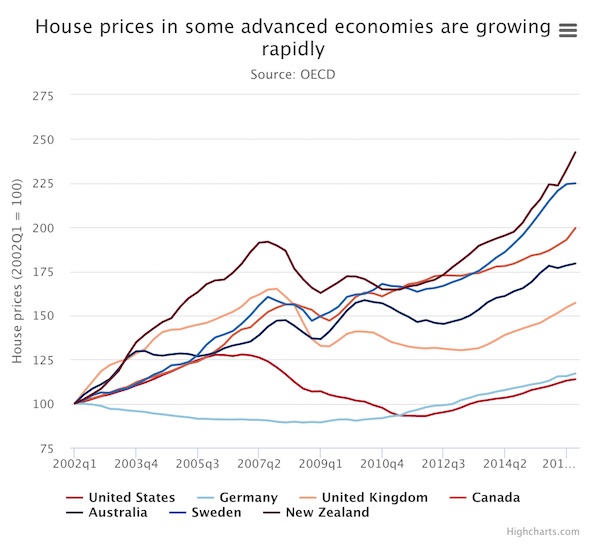
While prices did not fall across the country last year, there was a slowdown in activity as people chose not to buy a home. Johnny Morris, head of research at Countrywide, said: “There isn’t the same level of competition in the market now.” The Royal Institution of Surveyors reported that the number of new buyer inquiries has been at very low levels in the second half of the year. The number of new properties on the market has also been at record lows, helping to prop up prices. Mr Morris added: “We expect prices to fall next year as this slowdown works through the system. Generally the first thing to change will be the number of transactions, and then after the gap between what people will pay and how much people will accept opens up quickly and takes a while to close. Sales slow, and then there is a price adjustment.”

Yeah, please, end this B movie.
• Is Trump About to Debunk the Media’s ‘Putin-gate’ Conspiracy Theory? (AntiWar)
“It wouldn’t be a bad opening for a Tom Clancy novel about the Cold War” – that’s how the Los Angeles Times described the sequence of events leading up to the expulsion of 35 Russian diplomats (“spies”) and the latest face-off between Washington and Moscow. Indeed the whole episode of has about it a fictional aura, which is, after all, only appropriate, since the entire basis of this latest cold war drama is pure invention. The Russian “spy nest” had supposedly been in use since 1972 – but our Keystone Kops were just now getting around to dismantling it. Oh well, better late than never! It’s a 45-acre compound on the Maryland shore, about 60 miles from Washington, a place where Russian diplomats went to relax with their families.
Neighbors said they never saw anything the least bit off, and that the Labor Day picnics to which they were invited featured plenty of really good vodka. The head of the town council, a retired Marine, told the Los Angeles Times: “They’re good neighbors, and have been the whole time they’ve been there.” On New York’s Long Island a similar scenario unfolded: an estate long the site of Russian diplomats relaxing with their families is raided by the feds, and impounded, while baffled locals look on. It’s all part of the security theater performed by Obama’s dead-enders, as they do their best to cast a long shadow over the incoming Trump administration. And like any performance, it comes with a little booklet explaining the provenance of the piece, in this case a “report” reiterating in a most unconvincing manner the assertions we’ve been hearing since Election Day: that Trump’s victory was the culmination of an elaborate Russian conspiracy, a remake of “The Manchurian Candidate,” only this time with computers.
And just to add a little extra frisson to the mix, as the clock ticked toward 2017 the Washington Post ran a story alleging that those omnipotent Russkies had hacked into Vermont’s electricity grid – and were about to turn out the lights! Except they didn’t, they weren’t, and it was all a bit of that “fake news” WaPo has been warning us about. The “Russian malware” was found on a laptop that wasn’t even connected to the internet. And it wasn’t Russian malware, it was Ukrainian. Oh, the drama! Except there wasn’t any – at least, not enough for a Tom Clancy novel. [..] Is Trump about to blow this whole phony “Put did it” scam wide open? It wouldn’t surprise me in the least. What we are seeing playing out is the reaction of the swamp creatures as Trump proceeds to drain their natural habitat. That screeching roaring sound you hear is their collective outrage as the implications of Trump’s triumph become apparent.

Don’t think Assange ever figured he was going to end up defending Trump.
• Assange: Obama Admin Trying To ‘Delegitimize’ Trump (Hill)
WikiLeaks founder Julian Assange says there’s an “obvious” reason the Obama administration has focused on Russia’s alleged role in Democratic hacks leading up to Donald Trump’s electoral win. “They’re trying to delegitimize the Trump administration as it goes into the White House,” Assange said during an interview with Fox News’s Sean Hannity airing Tuesday night, according to a transcript of excerpts from the network. “They are trying to say that President-elect Trump is not a legitimate president,” Assange said during the interview, which was conducted at the Ecuadorian embassy in London where he has been staying. “Our publications had wide uptake by the American people, they’re all true,” Assange continued. “But that’s not the allegation that’s being presented by the Obama White House.”
Assange reiterated the group’s denial that Russia was the source of the Democratic documents released over the summer. “Our source is not a state party, so the answer for our interactions is no,” he said. In December, Assange told Hannity that the documents the anti-secrecy group received looked “very much like they’re from the Russians” but said his source was not them. When asked if he thought WikiLeaks influenced the 2016 election, Assange pointed to private comments from members of the Democratic National Committee (DNC) and Hillary Clinton’s campaign in documents published by the group. “Did [WikiLeaks] change the outcome of the election? Who knows, it’s impossible to tell,” Assange said. “But if it did, the accusation is that the true statements of Hillary Clinton and her campaign manager, John Podesta, and the DNC head Debbie Wasserman Schultz, their true statements is what changed the election.”

“He has described Kim as a “maniac”, but suggested in June 2015 that he would be willing to invite Kim to Washington for talks over hamburgers.”
• Trump Says US Safe From North Korean Nuclear Strike – No Thanks To China (G.)
Donald Trump has said no North Korean nuclear bomb will reach the US mainland, a day after the regime in Pyongyang claimed it was close to test-launching an intercontinental ballistic missile (ICBM). The president-elect – who has yet to articulate his incoming administration’s approach to North Korea’s nuclear weapons programme – also took another swipe at China, accusing Beijing of failing to rein in the North’s nuclear ambitions. “North Korea just stated that it is in the final stages of developing a nuclear weapon capable of reaching parts of the US. It won’t happen!” Trump tweeted. It was not clear what Trump meant: whether he believed North Korea was incapable of developing a reliable ICBM, or that the US would prevent it doing so.
He went on to reignite his verbal tit-for-tat with Beijing, this time linking trade to what he called China’s unwillingness to exert pressure on Pyongyang over its nuclear weapons programme. “China has been taking out massive amounts of money and wealth from the US in totally one-sided trade, but won’t help with North Korea. Nice!” [..] Since winning the US presidential election, Trump has not indicated he will abandon the Obama administration’s policy of isolating North Korea. He has described Kim as a “maniac”, but suggested in June 2015 that he would be willing to invite Kim to Washington for talks over hamburgers. North Korea is thought to be some way off developing a nuclear warhead capable of reaching the US, but some experts said Kim’s ICBM claims should be taken seriously, citing the progress that has been made since he became leader in late 2011.

Zombie country.
• China Needs To Let Companies Go Bust To Support The System – Xie (CNBC)
China posted positive manufacturing numbers this week, but there are more problems that need to be fixed in the system that is acknowledged, an economist said Tuesday. “(You cannot just) focus on overcapacity and not focus on the government policy of subsidizing production or the financial system, that is, basically rolling over non-performing loans to make it look like they are still performing,” said independent economist Andy Xie. “China has been stretching the cycle and trying to roll over all the loans so nobody goes bankrupt,” he told CNBC’s Squawk Box.
The Chinese government, he said, needs to stop boosting industry by subsidizing investment as this will further contribute to over-capacity—which is in turn funded by households invested in the property bubble. “This is destroying household sector demand and you get into a vicious cycle. The industry sector can never become healthy,” he said. Xie’s comments come on the back of the release of China Caixin’s December manufacturing Purchasing Managers’ Index (PMI) which marked its fastest rate of improvement in three years.

“.. the history of such endeavors shows that people care much more about preserving their wealth than observing the letter of the law…”
• Holes in China’s Currency Wall (BBG)
China’s latest great wall against capital outflows is likely to be as effective at stemming overseas real estate purchases as the real thing was at keeping out invaders.The country’s foreign-exchange regulator is requiring citizens who want to move money abroad to provide extra information on bank forms introduced Jan. 1, including a pledge that the funds won’t be used to purchase property.Beijing has made several attempts in recent months to rein in the nation’s voracious appetite for overseas bricks and mortar. In November, the government imposed a ban on foreign property purchases worth $1 billion or more by state-owned enterprises. Now, even the $50,000 that every individual is allowed to convert each calendar year can henceforth be used only for non-investment purposes such as travel or medical services.
[..] Unofficial conduits for moving money out of China abound. The continued demand for dollar-denominated insurance policies in Hong Kong — even after the use of China UnionPay Co. credit and debit cards was outlawed for such purchases — is evidence enough of that.One popular tactic is known as “smurfing” – breaking sums down into small increments that avoid official scrutiny, named after the little blue cartoon characters who as small individuals constitute a larger whole. People needing to move large amounts out of China can recruit friends and relatives to help carry the load in this way.Offshore trading companies – with the cover of export and import invoicing — have more leeway to move money in and out of the country, offering another route that can be used to finance overseas property purchases.
China has acknowledged a problem with fake invoicing. Still, a more stringent clampdown would risk disrupting trade at a time of weak growth.This is the rub for China’s foreign-exchange regulators. Capital controls are inevitably porous, especially for a country that’s as plugged into the global trade and economic system as China. And the demand for offshore property remains seemingly insatiable.Rich Chinese aim to have at least a third of their wealth outside the country and real estate is their most popular overseas investment, according to the Hurun Research Institute. About 60 percent of individuals surveyed said they plan to buy offshore property in the next three years, the wealth researcher said in an October report.
The reasons for the exodus are well known. China’s economy is slowing, domestic real estate is becoming increasingly unaffordable and the yuan is depreciating. In these circumstances, foreign property promises capital preservation. Until these fundamental factors turn around, Chinese authorities will be pushing against the tide.The greatest value of the latest controls may be in the signal they send to the general population: China is serious about reining in outflows, and those who are caught abusing the system will be dealt with severely. That may give some buyers pause. But the history of such endeavors shows that people care much more about preserving their wealth than observing the letter of the law. This is another clampdown that will fail.

That’s just hilarious. Marco Polo here we come.
• China Starts 7,500 Mile Freight Train to London as Xi Boosts Trade Ties (BBG)
China started a freight train to London as part of President Xi Jinping’s efforts to strengthen trade ties with Europe, Xinhua reported, citing state-owned China Railway Corp. The train, departing from Yiwu in eastern Zhejiang province, will cover more than 12,000 kilometers (7,500 miles) in about 18 days before reaching the British city, carrying goods such as garments, bags and suitcases among other items, Xinhua said Monday. The freighter will pass through Kazakhstan, Russia, Belarus, Poland, Germany, Belgium and France.
London is the 15th city in Europe to be added to China’s freight train services to the continent as Xi seeks to reinforce commercial links with markets across Asia, Africa, the Middle East and Europe. In 2013, Xi unveiled his so-called Belt-and-Road initiative, making transport lines the centerpiece of his efforts to create a modern Silk Road. China has initially set aside about $40 billion in a fund to finance roads and railways abroad under the plan, while the nation’s trade with countries along the routes could reach $2.5 trillion in about a decade, Yao Gang, the then vice chairman of China Securities Regulatory Commission, said in 2015.

It’s misleading to call this basic income. It leads away from the real thing.
• Finland Trials Basic Income For Unemployed (AP)
Finland has become the first country in Europe to pay its unemployed citizens a basic monthly income, amounting to €560 (£477/US$587), in a unique social experiment that is hoped to cut government red tape, reduce poverty and boost employment. Olli Kangas from the Finnish government agency KELA, which is responsible for the country’s social benefits, said on Monday that the two-year trial with 2,000 randomly picked citizens receiving unemployment benefits began on 1 January. Those chosen will receive €560 every month, with no reporting requirements on how they spend it. The amount will be deducted from any benefits they already receive. The average private sector income in Finland is €3,500 per month, according to official data.
Kangas said the scheme’s idea was to abolish the “disincentive problem” among the unemployed. The trial aimed to discouraged people’s fears “of losing out something”, he said, adding that the selected persons would continue to receive the €560 even after receiving a job. A jobless person may currently refuse a low-income or short-term job in the fear of having his financial benefits reduced drastically under Finland’s generous and complex social security system. “It’s highly interesting to see how it makes people behave,” Kangas said. “Will this lead them to boldly experiment with different kinds of jobs? Or, as some critics claim, make them lazier with the knowledge of getting a basic income without doing anything?”
The unemployment rate of Finland, a nation of 5.5 million, stood at 8.1% in November with some 213,000 people without a job – unchanged from the previous year. The scheme is part of the measures by the centre-right government of Finland’s prime minister, Juha Sipila, to tackle unemployment. Kangas said the basic income experiment may be expanded later to other low-income groups such as freelancers, small-scale entrepreneurs and part-time workers.

Obama’s legacy is not what it seems.
• US Special Operations Numbers Surge In Africa’s Shadow Wars (I’Cept)
Africa has seen the most dramatic growth in the deployment of America’s elite troops of any region of the globe over the past decade, according to newly released numbers. In 2006, just 1% of commandos sent overseas were deployed in the U.S. Africa Command area of operations. In 2016, 17.26% of all U.S. Special Operations forces – Navy SEALs and Green Berets among them – deployed abroad were sent to Africa, according to data supplied to The Intercept by U.S. Special Operations Command. That total ranks second only to the Greater Middle East where the U.S. is waging war against enemies in Afghanistan, Iraq, Syria, and Yemen. “In Africa, we are not the kinetic solution,” Brigadier General Donald Bolduc, the chief of U.S. Special Operations Command Africa, told African Defense, a U.S. trade publication, early this fall. “We are not at war in Africa – but our African partners certainly are.”

That statement stands in stark contrast to this year’s missions in Somalia where, for example, U.S. Special Operations forces assisted local commandos in killing several members of the militant group, al-Shabab and Libya, where they supported local fighters battling members of the Islamic State. These missions also speak to the exponential growth of special operations on the continent. As recently as 2014, there were reportedly only about 700 U.S. commandos deployed in Africa on any given day. Today, according to Bolduc, “there are approximately 1,700 [Special Operations forces] and enablers deployed… at any given time. This team is active in 20 nations in support of seven major named operations.” Using data provided by Special Operations Command and open source information, The Intercept found that U.S. special operators were actually deployed in at least 33 African nations, more than 60% of the 54 countries on the continent, in 2016.



